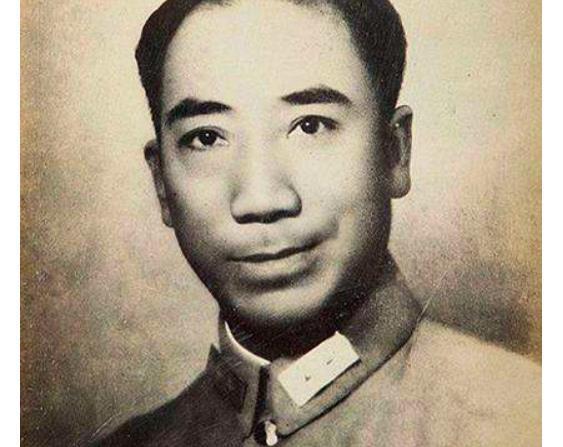When it comes to military unification, many people think of Dai Kasa. However, when the military command was formally established in 1938, Dai Kasa could only serve as deputy director. The director is He Yaozu. The full name of the Military Command, the Bureau of Investigation and Statistics of the Military Commission of the National Government (ABBR AS BIS), is one of the most important intelligence agencies of the Republic of China. Chiang Kai-shek attaches great importance to military unification, and the leaders of military unification are all personally selected by him. So, what is the origin of this He Yaozu? The status was even higher than Dai Kasa.

He Yaozu was born in 1889 in Ningxiang County, Hunan Province, with relatively superior family conditions, and entered a private school at the age of 6. At the age of 16, he was admitted to the Hunan Army Primary School and was the first batch of students in the school. Since then, He Yaozu has officially stepped into the military circles. In 1909, he was admitted to the Wuchang Army No. 3 Middle School. At the end of this year, due to his excellent grades, he was sent by the Qing government to study in Japan and study at the Zhenwu School in Japan. During this period, he was deeply influenced by revolutionary ideas and joined the League, determined to oppose the decadent rule of the Qing government. When the Wuchang Uprising broke out, He Yaozu returned from Japan and participated in the Xinhai Revolution. (Xiaobian saw this, a little emotional, obviously the Qing government paid him to study abroad, expecting him to return to China to engage in construction, but did not want to turn the muzzle of the gun to overthrow this government.) Is this worth thinking about! )
In 1912, with the financial support of Huang Xing, a big man of the League, He Yaozu went to Japan again to study, and was admitted to the Japanese Army Non-Commissioned Officer School to study, and was included in the school's Chinese student team. Four years later, He Yaozu graduated from Japan and returned to China to participate in the Patriotic War and the Dharma Protection Movement led by Sun Yat-sen. Outstanding performance in several battles. From these experiences, it can be seen that He Yaozu is senior and joined the revolutionary party very early. And it's coming to the fore.
For five years, from 1926 to 1930, He Yaozu served in the Nationalist Army, participated in the Northern Expedition, and served as the commander of the Fortieth Army. On March 24, 1927, together with Cheng Qian and Lu Diping, he conquered Nanjing and served as the commander of the Nanjing garrison. In the spring of 1928, the Nationalist government in Nanjing formed four group armies and carried out the Northern Expedition again. He served as the commander-in-chief of the Third Army of the First Army, and together with the First and Second Armies attacked Shandong and won a great victory.
From 1931 to the outbreak of the War of Resistance Against Japan, He Yaozu gradually broke away from the military and served as the deputy chief of staff of the Nationalist government. In 1935 he was also sent to Turkey as a minister. After returning to China in 1937, he served as the director of Lanzhou Xingyuan and the acting chairman of Gansu Province.
In 1938, the military command was formed, and a director needed to be elected. This person must be a man trusted by Chiang Kai-shek, and he must be senior, capable, and prestigious. At that time, Chiang Kai-shek already had a different look at Dai Kasa, who had also shown superior intelligence work ability, but he was not enough to serve as the main leader, he was shallow in seniority, and the people did not accept him. Thinking about it, Chiang Kai-shek made He Yaozu the director of the bureau, and Dai Kasa served as the deputy director.
Although Dai Kasa had outstanding ability, he also had a reverence for He Yaozu, and working under him, Dai Kasa did his best and did not dare to mess around.
In 1939, He Yaozu became China's special envoy to the Soviet Union. After returning to China, he served as the director of Chiang Kai-shek's attendant office and the mayor of Chongqing, and he reached the peak of his personal rights.
After the victory of the War of Resistance Against Japan, He Yaozu hoped that the motherland could achieve peace. Due to the serious factional struggle, He Yaozu became disillusioned with Chiang Kai-shek and resigned as mayor of Chongqing at the end of 1945. On August 13, 1949, He Yaozu jointly issued an uprising telegram in Hong Kong with Long Yun and 44 other people. When Chiang Kai-shek saw the telegram, he was greatly angered and immediately sent spies to Hong Kong to carry out the assassination. Because of his prudence and the protection of the prime minister, he eventually arrived safely in Beijing.
After that, He Yaozu served as minister of communications and other positions, and died of illness in Beijing in July 1961 at the age of 73.
As a veteran figure of the Kuomintang, He Yaozu resolutely chose the new government at a time when the Nationalist government was corrupt and incompetent, and the Nationalist army collapsed, abandoning the dark and casting light, and finally enjoying his old age in peace, which shows his boldness and vision.
Editor/Genichi, picture from the web